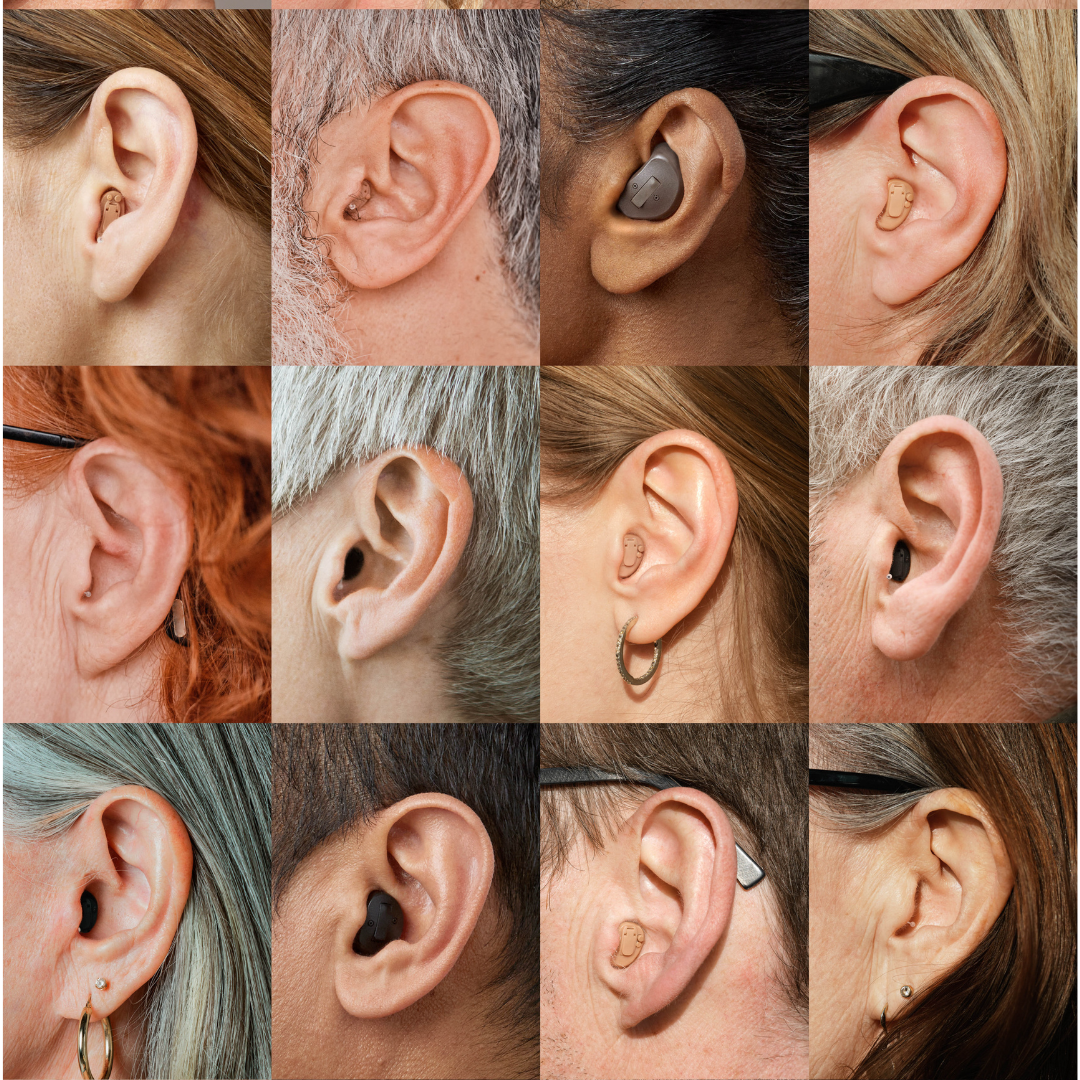
Oticon Own new hearing aids to demo


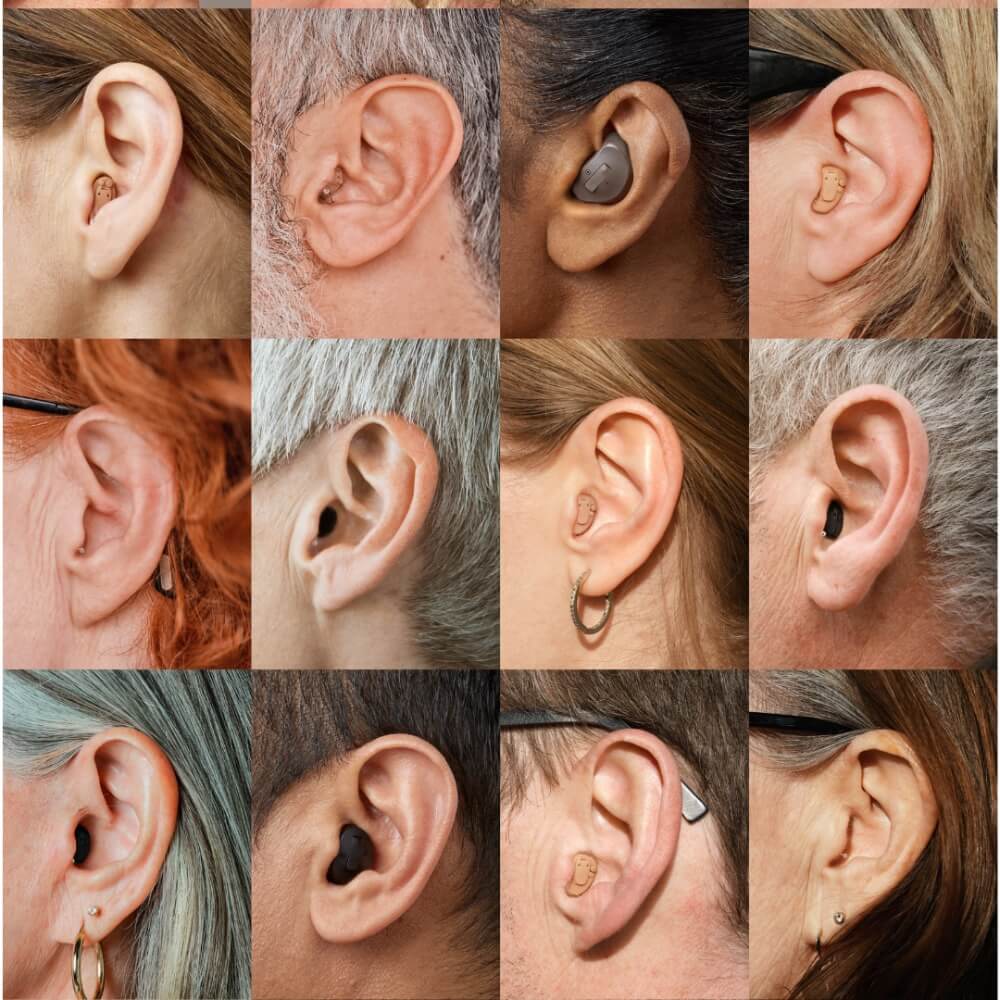
Every ear shape is unique so if you’re looking for new hearing technology you need a customised hearing aid solution.
Oticon Own™ is made to meet your specific needs – developed for optimal comfort, discretion, and sound experience – and customised entirely for you.
Built on technology that supports your brain’s natural way of working. By providing the brain with the full sound perspective, the hearing aid supports the brain’s natural way of organising sound.
To find out more about our hearing consultations click here
An invisible look. The invisible-in-canal (IIC) style is invisible in 9 out of 10 ears for ultimate discreetness.
Maintaining precise balance between speech and other sounds. Built on BrainHearing™ Designed to support your brain’s natural way of working.
Enjoy hands-free communication using your hearing aids as a headset to connect wirelessly to your phone or tablet.
A range of colours and styles to suit your skin tone and personal style.
If you’d like to demo this new hearing technology call us now or complete the form.

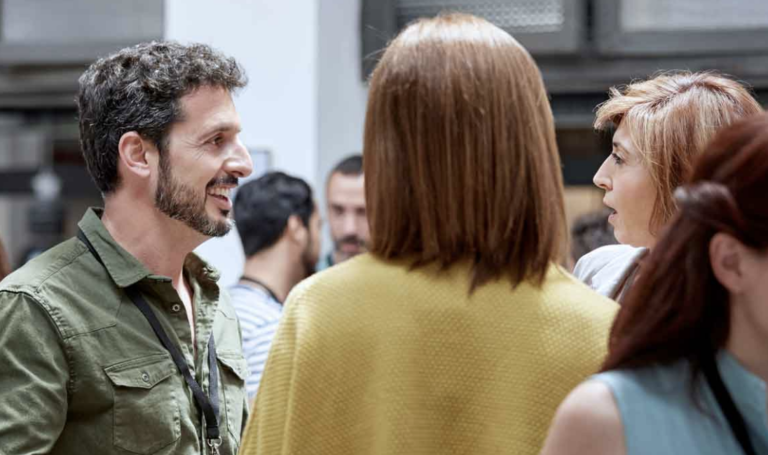
Three new hearing aid models available from Phonak. The Audeo Lumity R, Audeo Lumity RT with a telecoil, and Audeo Lumity RL which is their Life waterproof hearing aid.
The most desired request from current hearing aid users is ‘better hearing in background noise’ so this is Lumity’s main focus, helping you to fully immerse in conversations in any environment.
All models are available currently as rechargeable options only.
There are two key developments:

Audeo Lumity also includes:
Audeo Lumity is available now, contact us for your demo appointment on 020 7486 1053.
Harley Street Hearing is London’s largest independent hearing clinic, established on Harley Street for over 25 years. Our staff are highly trained clinical audiologists.
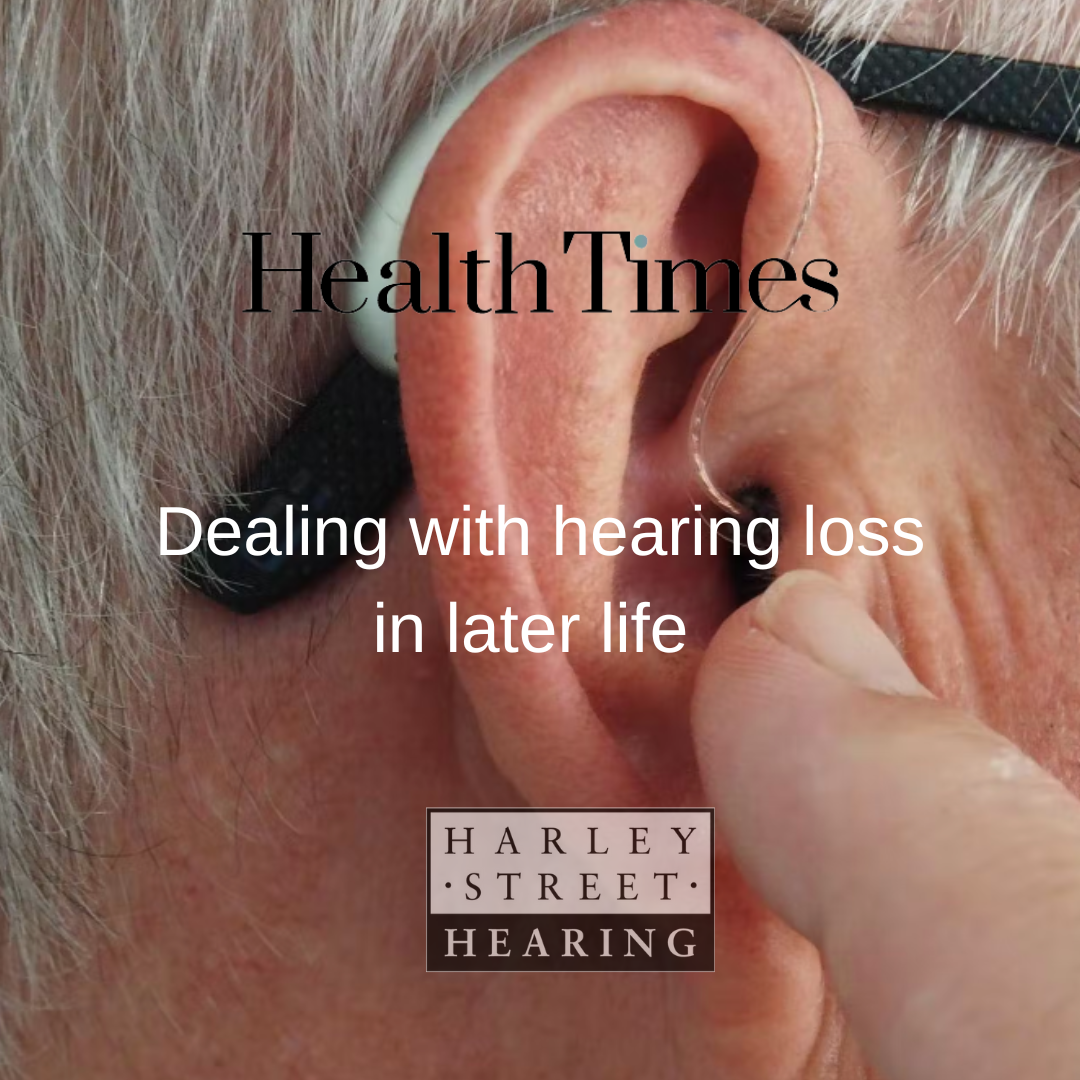
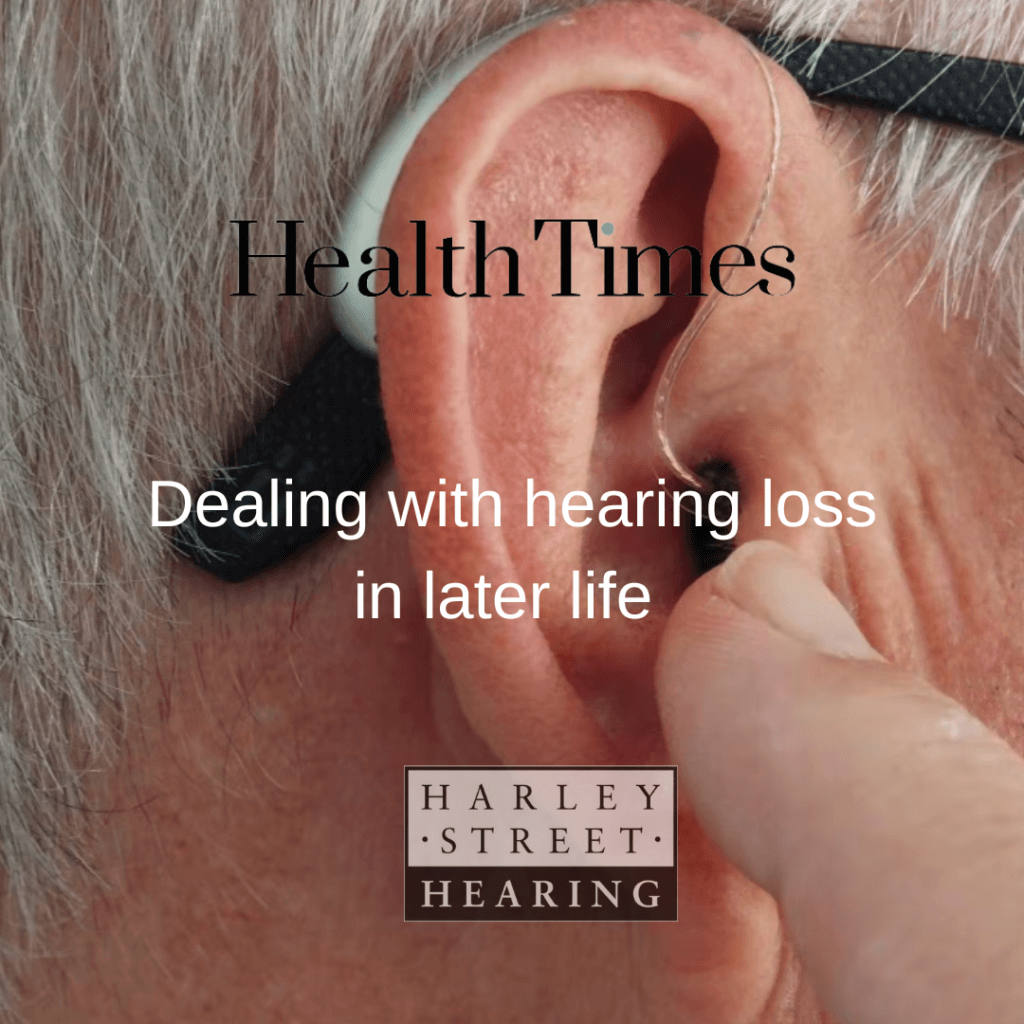
Harley Street Hearing Partner, Matthew Allsop contributed to this article in Health Times.
“It’s typical for people to look after their eyes and have regular eye tests. However, that same trend hasn’t followed on into the hearing loss world.”
“It is so important that once hearing loss is identified it is managed, whether that is with medical intervention if it is something that can be remedied, or with hearing aids if it is a permanent type of hearing loss. On average, people wait around seven years from suspecting they have hearing loss or their family members telling them to get a hearing test until they have a hearing aid fitted.”
“That’s seven years of struggling unnecessarily. Hearing aid technology is different to what 99% of people think, both in terms of how they look and in terms of how they function, and with the right technology, you will not only improve hearing, but also improve energy levels, social interaction, and even delay the onset of cognitive decline.”
If you’d like to have your hearing checked, call or complete the form. We look forward to seeing you.
To see the full article click here
Enjoy this article? You might be interested in some of our others:
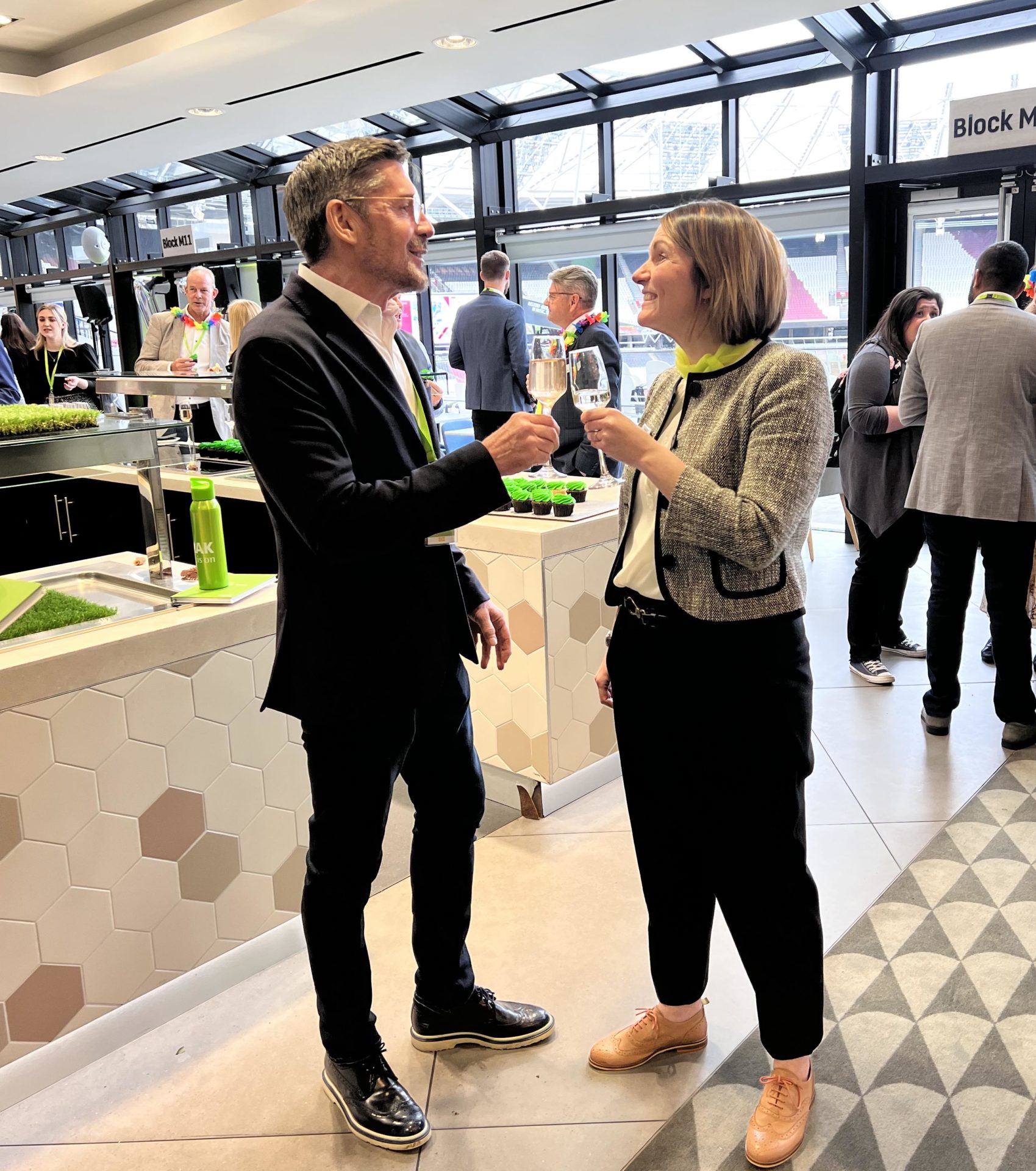
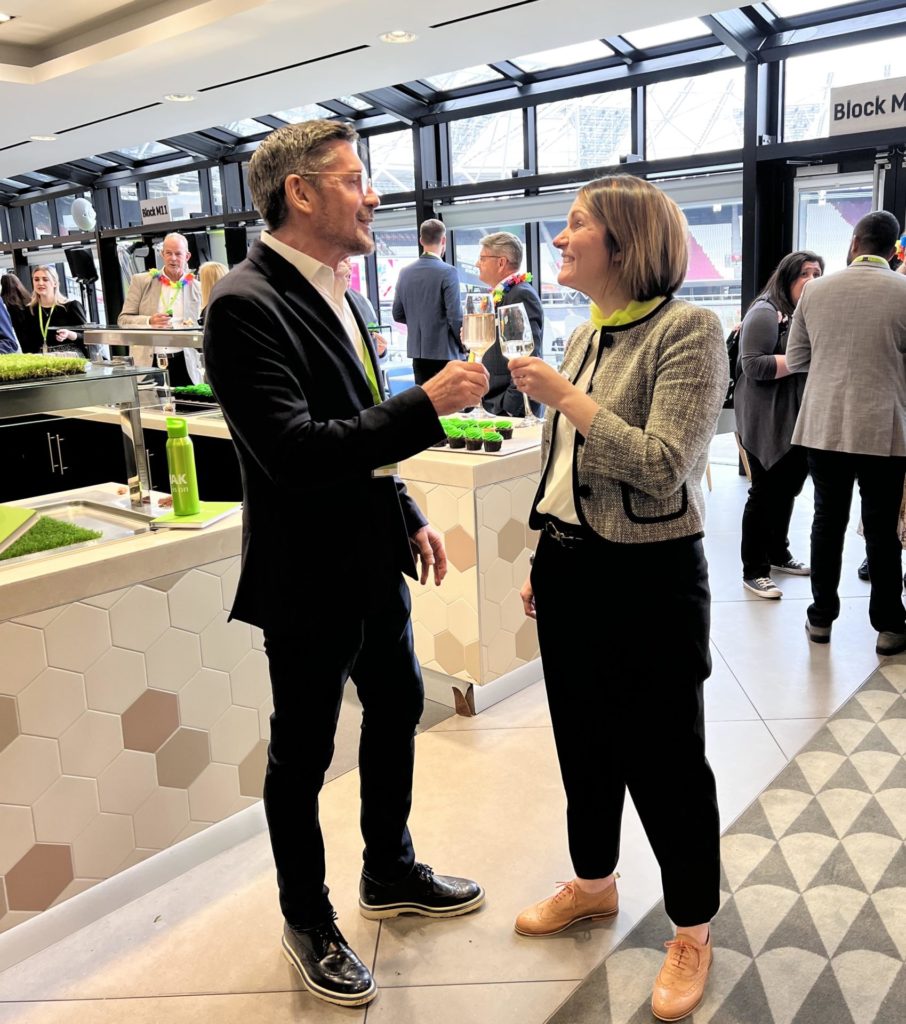
Paul Checkley, partner at Harley Street Hearing, and Karen Gallagher, Managing Director of Sonova UK, at the launch of Sonova’s new hearing technology, held at the London Stadium in the Queen Elizabeth Olympic Park.
The new hearing aids include Audéo Life, the world’s first waterproof rechargeable hearing aid, with additional protection against moisture, sweat and other challenging real-word conditions.
If you’d like to trial Audéo Life please call us or complete the form.
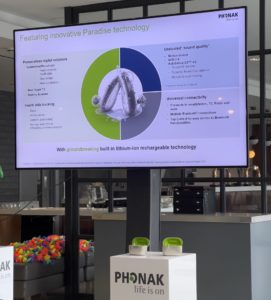
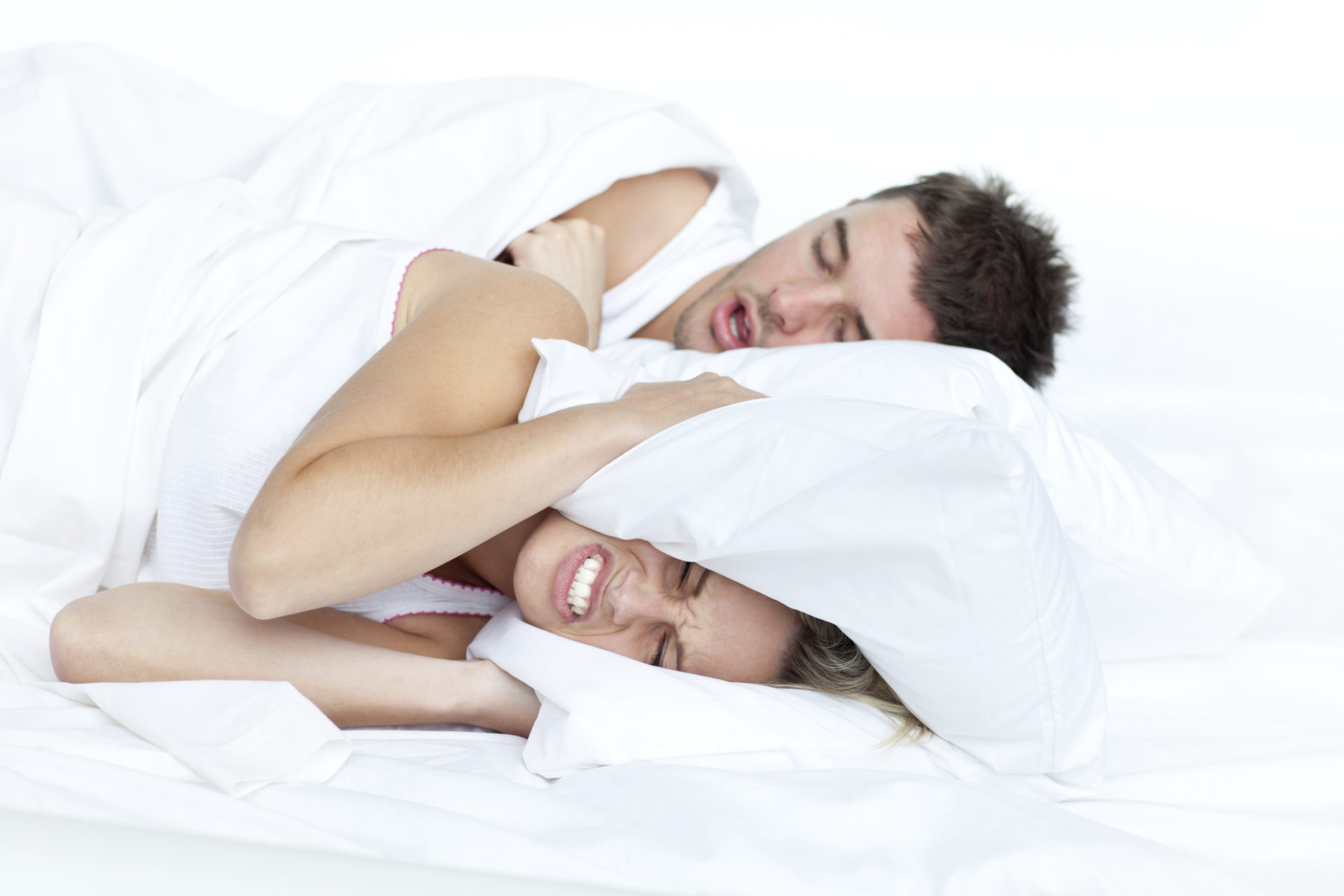
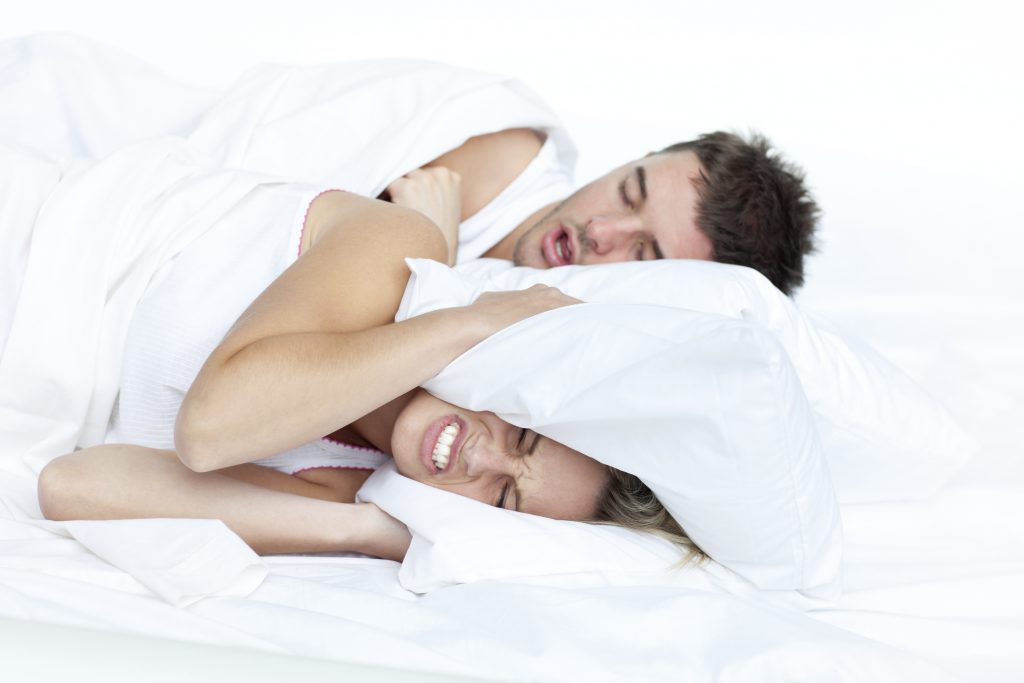
Do you have a partner whose snoring interrupts a peaceful night’s sleep?
Did you know 44% of men and 28% of women snore every night so it’s a common problem, you’re not a lone sufferer!
You’re more likely to snore if you sleep on your back, are pregnant or going through the menopause.
Anyone of any size or age can snore, it occurs as your throat muscles and tongue relax while you’re sleeping.
Sleeping with a snorer can raise your blood pressure and is known to affect a couple’s sex life and overall marital satisfaction.
There’s no need to resort to going into another room or being constantly tired as your sleep is broken throughout the night. We can help!
Our custom-made sleep plugs are made to accommodate any movement of the ear while you sleep as they are a perfect fit to your ear. They will block out the sound so you will be totally oblivious to the noise of the snoring.
We take an impression of your ear and we’ll have you sleeping through the night in no time. Just set your alarm to vibrate.
Call today for an appointment. Custom-made sleep plugs are £99.
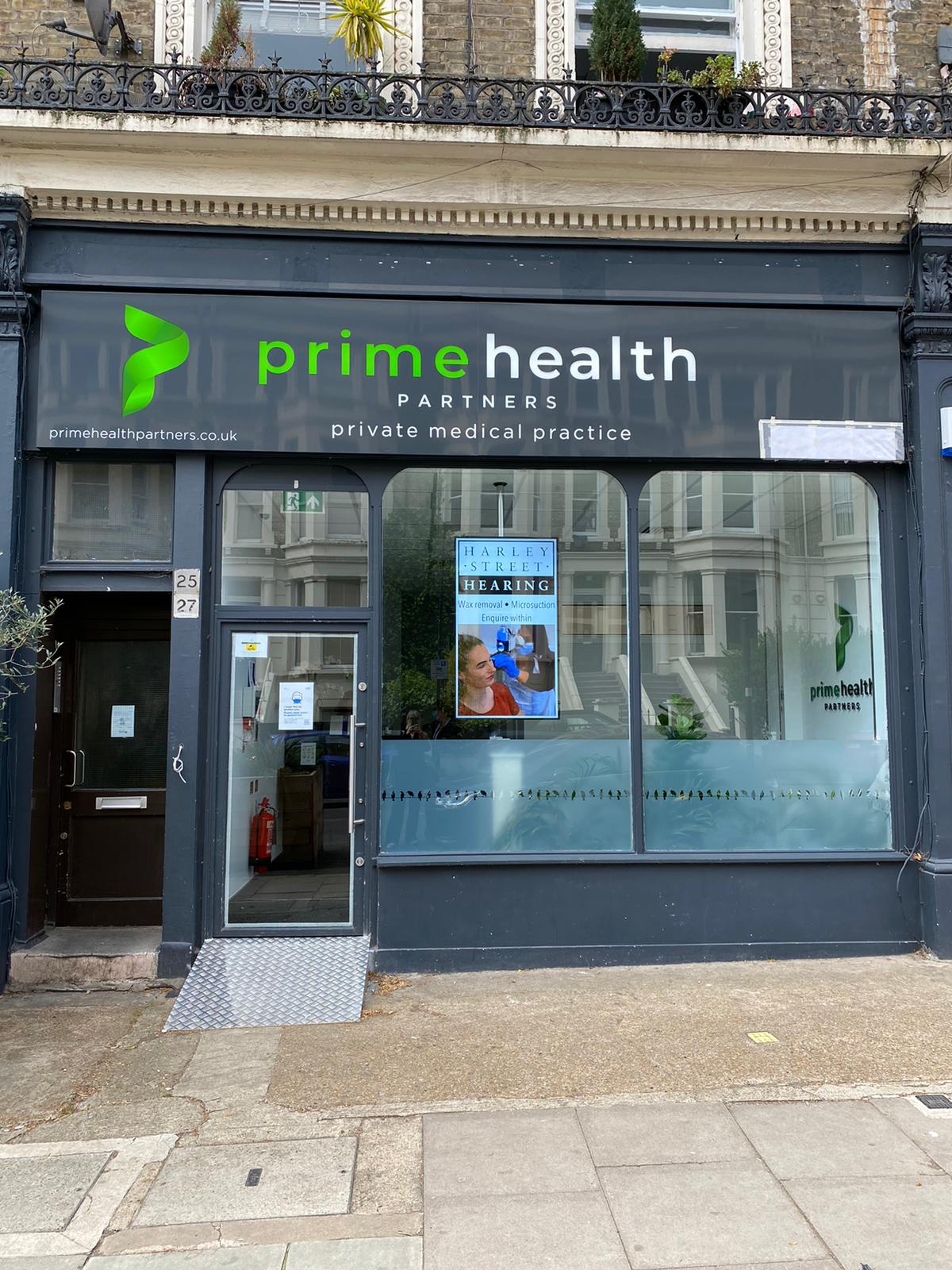
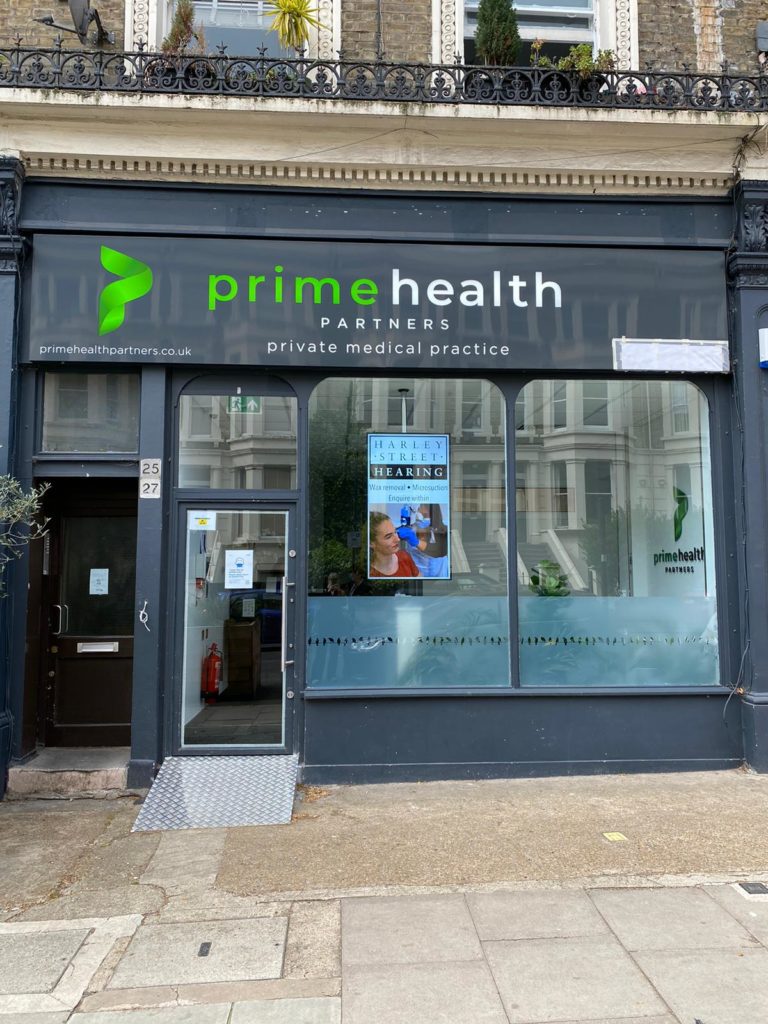
We are delighted to be partnered with Prime Health Partners, (London’s most accessible private medical practice) providing our Harley Street Hearing services for residents of Belsize Park and surrounding areas.
Our new clinic provides hearing testing, and should you have a hearing loss, new state-of-the-art hearing aids. For those who already have hearing aids, we offer a clean and repair service.
You can also come in for a free 30 day Lyric hearing aid trial – Lyric is the only truly invisible hearing aid which is available on a subscription basis
For instant ear wax removal our clinical audiologists carry out precision accuracy microsuction using high-spec examination microscopes.
Additionally we take unique ear impressions to create your own bespoke hearing protection. These earplugs are individually crafted to fit the precise size and shape of your ear. Custom-made hearing protection is available for Musician’s or Concert Goers, In-ear Monitors Swimming, Sleeping, Leisure Shooting, Phone Earbuds, Motorbike Riders, TV Presenters, or Noisy Working Conditions.
So whether you’re one of our current patients, who find the new Swiss Cottage location more convenient; or a new patient interested in exploring what our hearing services can do for you, call 020 7486 1053 now.
One of our highly qualified Clinical Audiologists, will be pleased to help you.
Prime Health Partners, 27-29 Winchester Road, Belsize Park, London, NW3 3NR
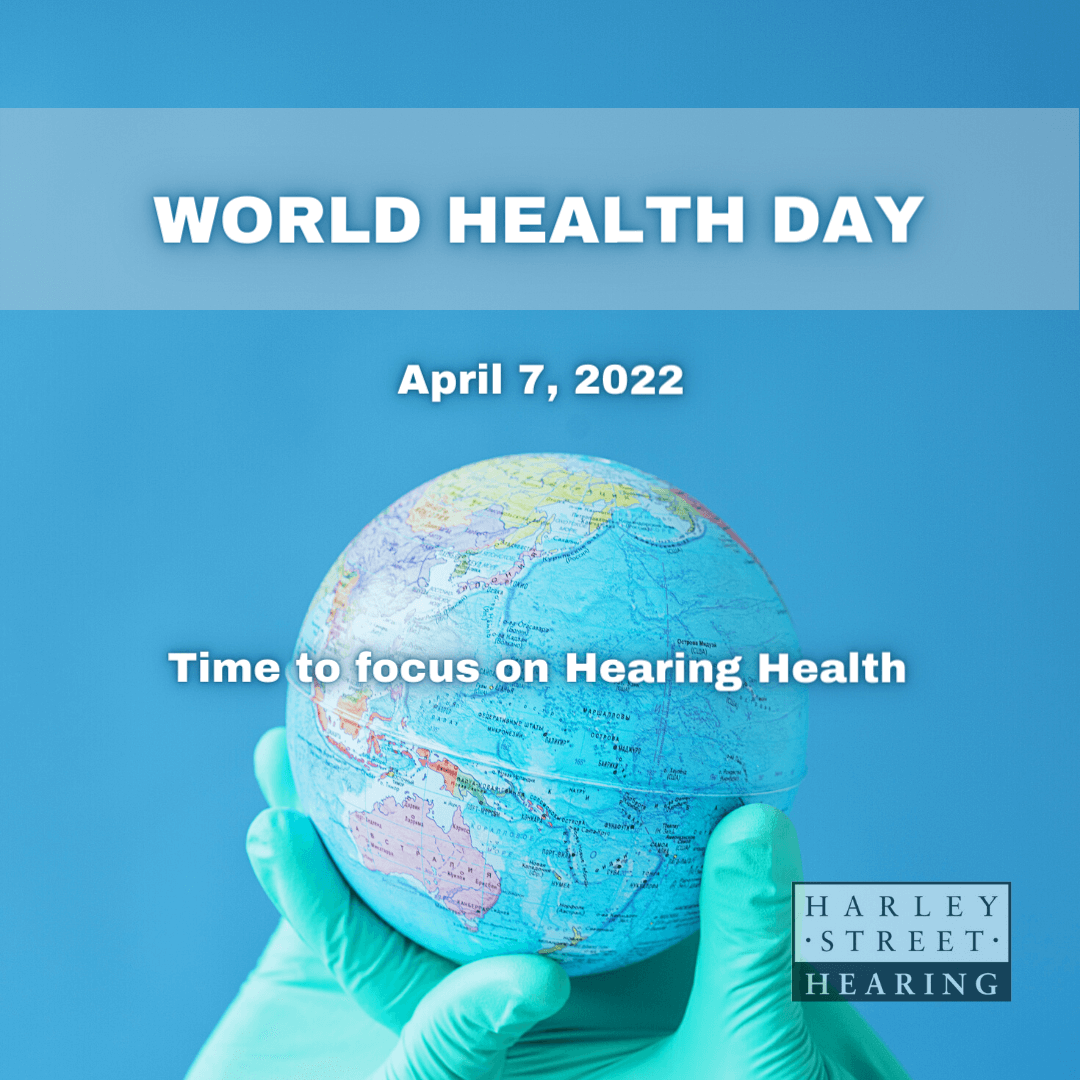
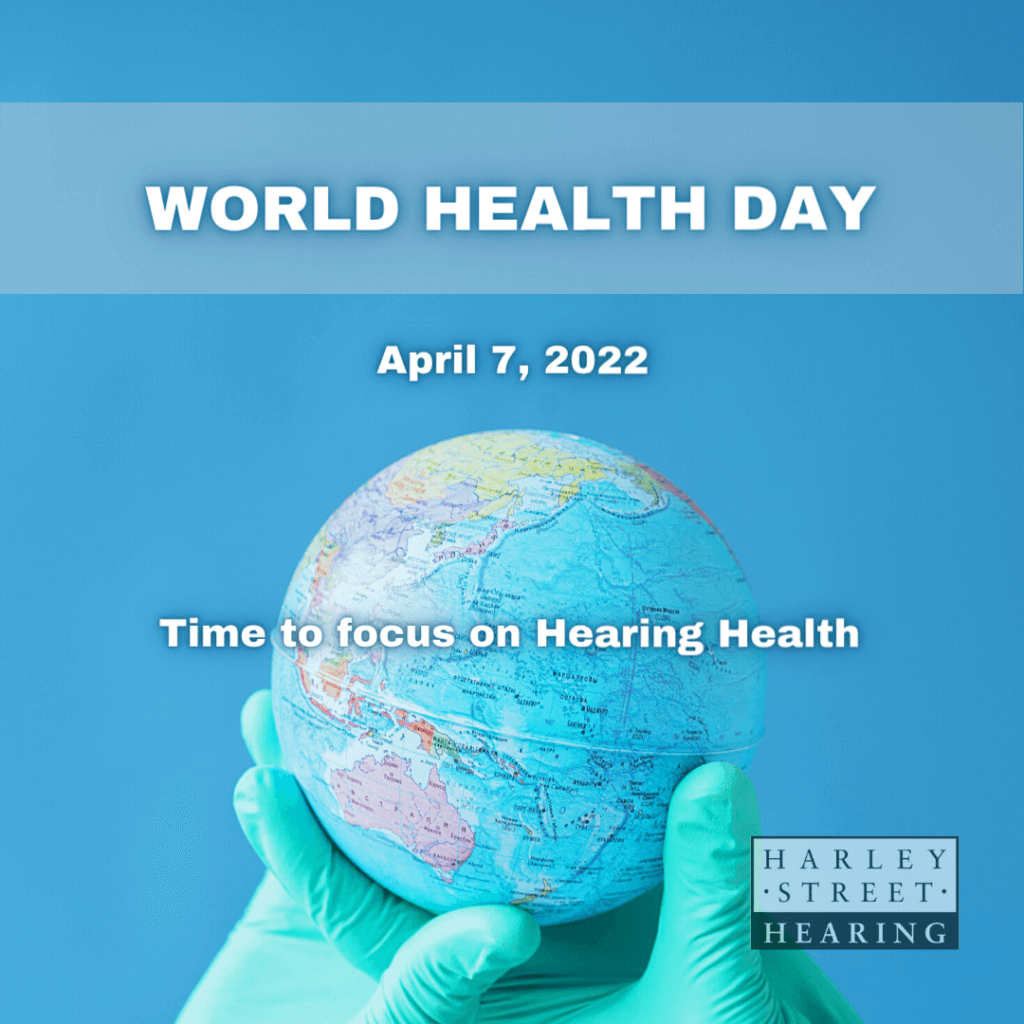
It’s time we focussed on our hearing health.
On average those with a hearing loss wait 10 years before going for a hearing test, but can you really afford to wait that long?
It’s best to lead a fully active and inclusive life, hearing everyone and everything around you ‘way’ before we consider cognitive decline. BUT if you have any hearing concerns prevention is always best.
As we age, connections between cells in the brain are damaged, or some cells are lost—this is called “brain atrophy” or “cognitive decline.”
Early diagnosis and treatment of cognitive decline and hearing loss are key to preserving our quality of life as we grow older.
On average those with a hearing loss wait 10 years before getting help. But during that time, communication with loved ones will have become more difficult, and social isolation and health risks increase.
Hearing loss isolates you from everyone around you. Someone with a hearing loss will sit silently rather than joining in conversations, as they feel helpless and exhausted from trying to listen. Social isolation is a key contributing factor for dementia.
This is loneliness that can affect health. People who are socially isolated have little day-to-day contact with others, have few fulfilling relationships and lack a sense of belonging. Social isolation can increase the risk for poor eating, smoking, alcohol use, lack of exercise, depression, dementia, poor sleep and heart disease.
Your hearing deteriorates very slowly over a long period of time so the earlier you seek treatment the better. If you have a hearing loss and wear hearing aids, this will keep you connected with others, helps your brain stay younger and keep you involved in life.
Wearing hearing aids sooner and more regularly improves those affected by Alzheimers and dementia’s quality of life, makes communication easier and helps avoid social isolation, and may help slow further cognitive decline.
Don’t assume your loved one is suffering from dementia if they’re having trouble understanding speech, or finding it exhausting to have simple conversations. Hearing loss has some of the same symptoms as cognitive impairment, so it’s vital to have regular hearing checks.
Don’t wait 10 years! If you have noticed a loved one may have a hearing loss (or maybe you have), don’t leave it any longer – call 020 7486 1053. One of our highly qualified Clinical Audiologists will be delighted to see you and your loved one for a hearing consultation.
Harley Street Hearing are London’s leading independent hearing clinic – established in Harley Street for 25 Years.
Enjoy this article? You might be interested in some of our others:


For Men’s Health Week we’re focusing on hearing issues.
Men are five and a half times more likely to lose their hearing than women. They are also less likely than women to seek help or to talk about their hearing loss.
This may be due to certain health factors, men have higher instances of heart disease and diabetes which can contribute to hearing loss.
Men tend to work in jobs that have louder working environments and are known to damage your hearing. Construction, factory and military jobs are mostly male-dominated occupations, they are also some of the loudest.
Hobbies can also contribute with men enjoying the use of motorbikes, workshops or shooting pastimes.
Long-term exposure to some loud sounds can cause permanent damage after just 8 hours, the equivalent of one workday.
Sound is measured in decibels, the sound of a rustling leaf registers at a 0 dB level and heavy city traffic registers at 85 dB.
At 85 dB or higher, permanent hearing damage can occur. Here are just a few examples of harmful sounds you may experience on a daily basis:
90dB – Lawn Mower
93dB Belt Sander
105dB Bulldozer
110dB Chainsaw
140dB Airplane taking off
For men’s hearing health look out out for the following, if you have a hearing loss you may experience any or all of the following:
How can you protect yourself against hearing loss?
Stay away from excessive noise. If you have to shout over a sound, it is too loud. You can take steps to properly protect your ears either in the workplace or in leisure activities with custom hearing protection
Limit the time you spend around loud sounds. Sometimes you can’t avoid being in a noisy place, but don’t spend any more time there than you really need to.
Hearing is a precious gift so if you feel you’d benefit from having a hearing test or would like custom made hearing protection please call 020 7486 1053. One of our highly skilled audiologists will be delighted to see you.
Enjoy this article? You might be interested in some of our others:


In Oscar-nominated film Sound of Metal, Riz Ahmed plays a rocker who loses his hearing. Sadly, the story is a reality for too many musicians.
Unsurprisingly, recent data says musicians are among the most likely people to have a hearing problem. “Research has shown that between 37-58 per cent of classical musicians, and 46-49 per cent of rock or pop musicians have found to have hearing impairments, with the general population coming in at around 13 per cent,” says Paul Checkley, Clinical Director at Harley Street Hearing & Musicians’ Hearing Services.
“The music industry is somewhat behind when making a comparison to the management of noise exposure in the industrial and construction sectors. The use of Personal Protective Equipment (PPE) on building sites is enforceable, meaning that without use of the appropriate hearing protection, you could be removed from site. This is not the case in the music industry, despite the levels of noise being comparable at times.”
Although Paul points out that the increase in headphone use blurs the line somewhat between damage done by listening to music on your phone and being bombarded by decibels at a gig, the number of stars who have damaged their hearing while on the job is nevertheless long.
It’s not just tinnitus that can affect a person’s mental health. Paul Checkley also lists hyperacusis (where everyday sounds seem much louder than they should) and diplacusis (where the same sound can be perceived as being different in pitch between the two ears) as potential hearing problems that can cause a person problems beyond their ears. “These symptoms, along with the hearing loss, can affect a person’s confidence, and does often impact their mental health,” he says.
“The presence of a hearing loss alone can also cause people to isolate because they are embarrassed about not hearing well, which then has further effect on their mental health. Managing the hearing loss can help to reverse the isolation, allowing the person to become more confident with their interactions and therefore improve their well-being.”
In the UK, the Musicians Union offer a Musicians’ Hearing Health Scheme, which offers free check-ups and professional earplugs, as well as subsidised treatments like wax removal. And although treatment like the one that worked for Brian Johnson after the fact is good, all audiologists will tell you that protection is the best cure.
“Don’t wait for there to be a problem with your hearing; be proactive,” says Paul Checkley. “Having annual hearing tests will allow your hearing to be monitored and means that it will be much easier to pinpoint any potential changes and manage them quickly and efficiently. There are patients who have significant hearing losses who initially thought they might have to stop playing music, but through careful use of hearing aids with specific settings for their musical endeavours, and the understanding that there are adaptations that might be required, many are able to continue playing and performing music.”
Click here see the full Telegraph interview.
If you have any hearing concerns call 020 7486 1053


New movie Sound Of Metal explores the tragic consequences of a musician going deaf. Paul Checkley Clinical Director at Harley Street Hearing speaks to Kerrang! on how tinnitus is affecting the lives of music fans…
Tinnitus, or as most people know it, a high-pitched ringing you get in your ears, can be intermittent for some people, but for others it’s a chronic condition. It’s also irreversible.
“People say, ‘I came out of a gig and my ears were ringing’ without understanding that isn’t something to just joke about,” says Paul Checkley, Clinical Director at Harley Street Hearing, an audiological practice in London. “It means that potentially your hearing has been damaged irreversibly… There is no cure for tinnitus as such, which is one of the biggest issues that people face: you get this ringing in your ears and are then told that you’re going to have that for the rest of your life.”
“A lot of the damage to people’s hearing appears to be done by leisure activities,” explains Nic Wray of the British Tinnitus Association, who are being approached by more and more people asking for help. “If you go to a building site or a factory, everyone’s got ear protection, but there’s not as much awareness for people going to live events. Venue staff are protected by health and safety legislation, but the musicians aren’t covered onstage because they’re not employees and it’s the same for the audience.”
Because tinnitus has no cure, only treatment, both Paul and Nic recommend wearing earplugs. Harley Street Hearing fits both heavy gig-goers and musicians with custom-moulded, “flat response” plugs, while BTA’s Plug’em initiative contains a guide to the different types of ear protection available.
For those who already suffer from tinnitus and need help managing it, Paul explains that the hearing problem has “a psychological aspect and a physiological aspect”, and that more is known about the former. “What we do know is that there’s a link between the emotional part of our brain the perpetuation of the tinnitus, so the treatments are centred around rehabilitation and therapy,” he explains. “Things like cognitive behavioural therapy have a really good research base. Mindfulness or meditation is beginning to have an equally strong research base and works really well, too.”
“If you’ve got tinnitus, we would normally do a hearing test to allow us to assess it,” says Paul. “We have criteria that say we’ve got to send you to get a medical opinion if it’s particularly troublesome for you. In those cases, your GP is your best place to start.”
See the full Kerrang interview here
Recent Comments